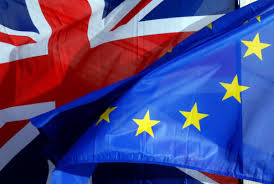A post-Brexit UK can stay in the Unitary Patent system, although a number of criteria would have to be met. That is the opinion of leading counsel Richard Gordon QC and Tom Pascoe of Brick Court Chambers, who were asked by the IP Federation, the Chartered Institute of Patent Attorneys and the Intellectual Property Lawyers Association for an opinion on the legal consequences of a Brexit for the UP system.
 The UK has to ratify the UPC Agreement before the new Unitary Patent and the Unified Patent Court can launch. Since the Brexit referendum of 23 June 2016, it has been uncertain whether this is still possible, legally and politically. Gordon and Pascoe have studied the legal aspects and concluded there are no obstacles for further UK participation in the UP system. Some of the findings in their report:
The UK has to ratify the UPC Agreement before the new Unitary Patent and the Unified Patent Court can launch. Since the Brexit referendum of 23 June 2016, it has been uncertain whether this is still possible, legally and politically. Gordon and Pascoe have studied the legal aspects and concluded there are no obstacles for further UK participation in the UP system. Some of the findings in their report:
‘The UK may only continue to participate in the unitary patent by entering into a new international agreement with the participating EU Member States. The permissibility of such an agreement under EU law would turn upon essentially the same matters as the legality of the UK’s continuing participation in the UPCA.’
‘Provided that it is legally possible for the UK to continue to participate in the UPCA, there is no reason why it cannot continue to host a section of the central division.’
‘The UK’s continued participation in the UPCA would require it to submit to EU law in its entirety as regards proceedings before the UPC. It would also need to sign up to an appropriate jurisdiction and enforcement regime (such as the Lugano Convention).’
‘It would only be possible to obtain a pre-emptive opinion from the CJEU on the legality of the UPCA if the Union became a party to the Agreement.’
‘If the UK ratified the UPCA, without amendment, and subsequently left the EU, any divisions of the UPC in the UK would have to cease operating. The transitional consequences of this are matters of detail to be negotiated as part of the UK’s exit negotiations.’
 The report addresses in detail Opinion 1/09 of the European Court of Justice, which led to the removal of non-EU member states from the UPCA. Based on Opinion 1/09, some experts have concluded that because of the Brexit vote the UK will have to leave the UP system as well, as in the future it will no longer be an EU member state. Gordon and Pascoe don’t agree.
The report addresses in detail Opinion 1/09 of the European Court of Justice, which led to the removal of non-EU member states from the UPCA. Based on Opinion 1/09, some experts have concluded that because of the Brexit vote the UK will have to leave the UP system as well, as in the future it will no longer be an EU member state. Gordon and Pascoe don’t agree.
’51. The Opinion has been interpreted in two different ways. One group of stakeholders (most notably the Commission) has interpreted it as precluding the participation of non-EU Member States in the UPCA. Another group has interpreted the Opinion as allowing the participation of non-Member States so long as they sign up to sufficient safeguards to ensure the supremacy and uniformity of EU law.
52. In our view, the better interpretation of CJEU Opinion 1/09 is that it does not preclude the participation of non-Member States in the UPCA, provided that they sign up to sufficient safeguards to protect EU constitutional principles (…).’
The authors explain in detail the six reasons that have led them to this conclusion. They have a look at potential counterarguments as well, but don’t think they are convincing:
‘102. Due to the opaque reasoning in Opinion 1/09, we cannot rule out the possibility that the CJEU would reach a contrary conclusion in a future decision. However, we would find such a conclusion as something of a triumph of form over substance given that the Court’s only objections to the UPCA in Opinion 1/09 can be met by imposing obligations on the UPC requiring it to behave as though it is within the institutional legal order of an EU Member State (i.e. as though it is a national court). Furthermore, as explained above, such a ruling by the CJEU would have potentially wide-ranging consequences for other international agreements which confer jurisdiction on international tribunals.’
The authors stress they were only asked to advise on legal issues, not on the political feasibility of a continued UK membership of the Unitary Patent, ‘upon which we express no views’. Still, they point out that the political obstacles could be considerable, for instance here:
76. We see no reason of domestic constitutional law why the UK could not submit itself to the supremacy of EU law in the field of patent disputes before the UPC. However, it is important to note that the UK would be required to accept the supremacy of EU law in its entirety as regards all such disputes as fall within the jurisdiction of the UPC. This would include, for example, competition law, fundamental rights arising under the Charter and general principles of EU law, as well as the specific patent rules contained, for example, in the Biotechnology Directive, as well as possible future EU legislation. The requirement to accept such a wide range of EU rules may be politically significant.’
Simmons & Simmons partner Kevin Mooney, one of the people who commissioned the report, said it has now been sent to the UK politicians. They will have to decide whether the UK is prepared to give such assurances in relation to the supremacy of EU laws relating to patents. ‘I don’t know the answer to this.’
EPO president Benoît Battistelli still hopes that despite the Brexit the Unitary Patent system can enter into force as planned in 2017. According to a LAW360 article, Battistelli said this in a keynote address at the Intellectual Property Owners Association’s annual meeting in New York last Tuesday. Battistelli reportedly said that the EPO is urging the UK to ratify the UPCA and that he is hopeful that the UK will do so in the coming months.
If the UK declines to ratify the treaty, this will make the future of the system uncertain, Battistelli told his audience according to LAW360, quoting him as saying: ‘We will probably have to wait for years, and nobody knows how many years.’
For regular updates on the Unitary Patent and the Unified Patent Court, subscribe to this blog and the free Kluwer IP Law Newsletter.
_____________________________
To make sure you do not miss out on regular updates from the Kluwer Patent Blog, please subscribe here.
Kluwer IP Law
The 2022 Future Ready Lawyer survey showed that 79% of lawyers think that the importance of legal technology will increase for next year. With Kluwer IP Law you can navigate the increasingly global practice of IP law with specialized, local and cross-border information and tools from every preferred location. Are you, as an IP professional, ready for the future?
Learn how Kluwer IP Law can support you.


